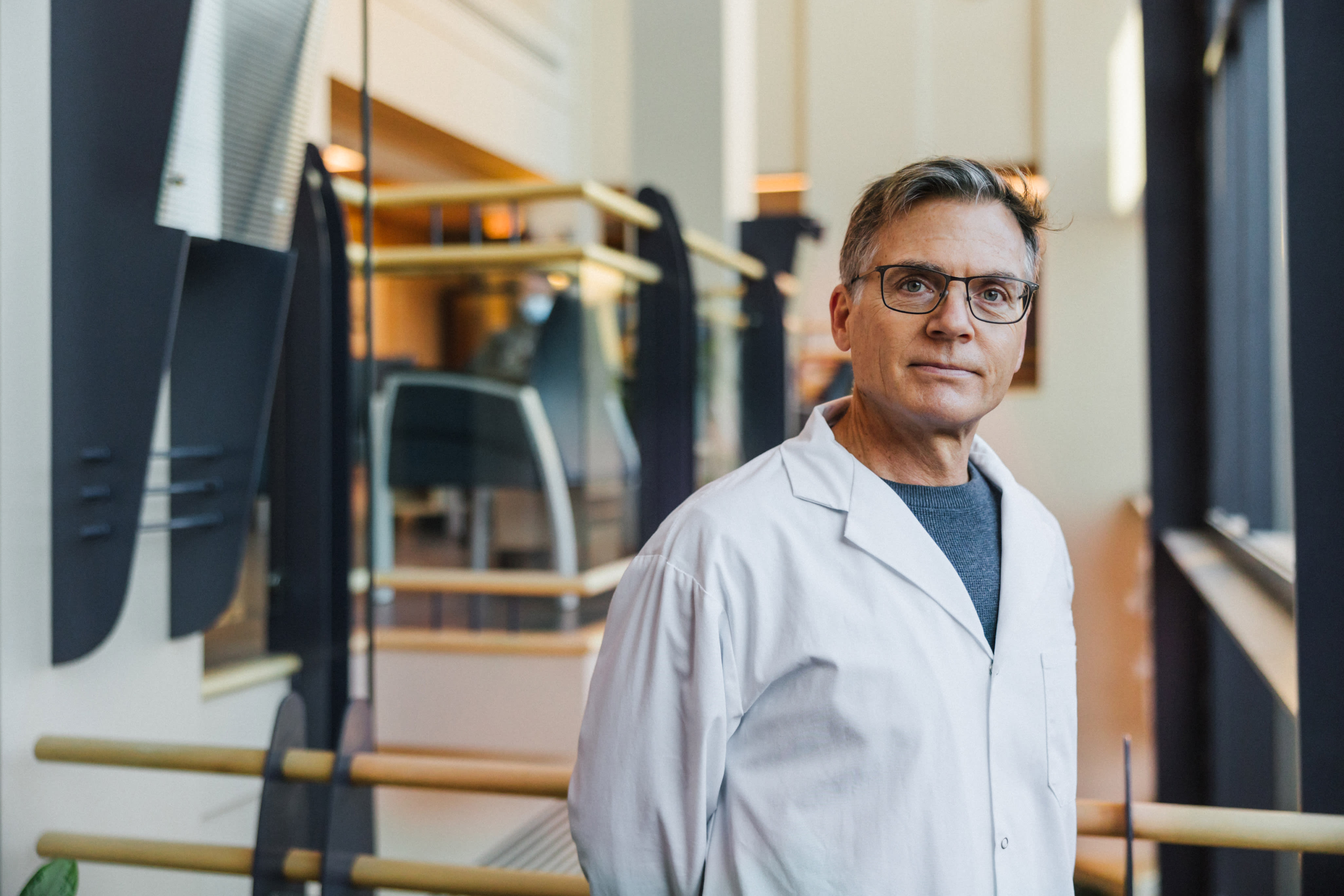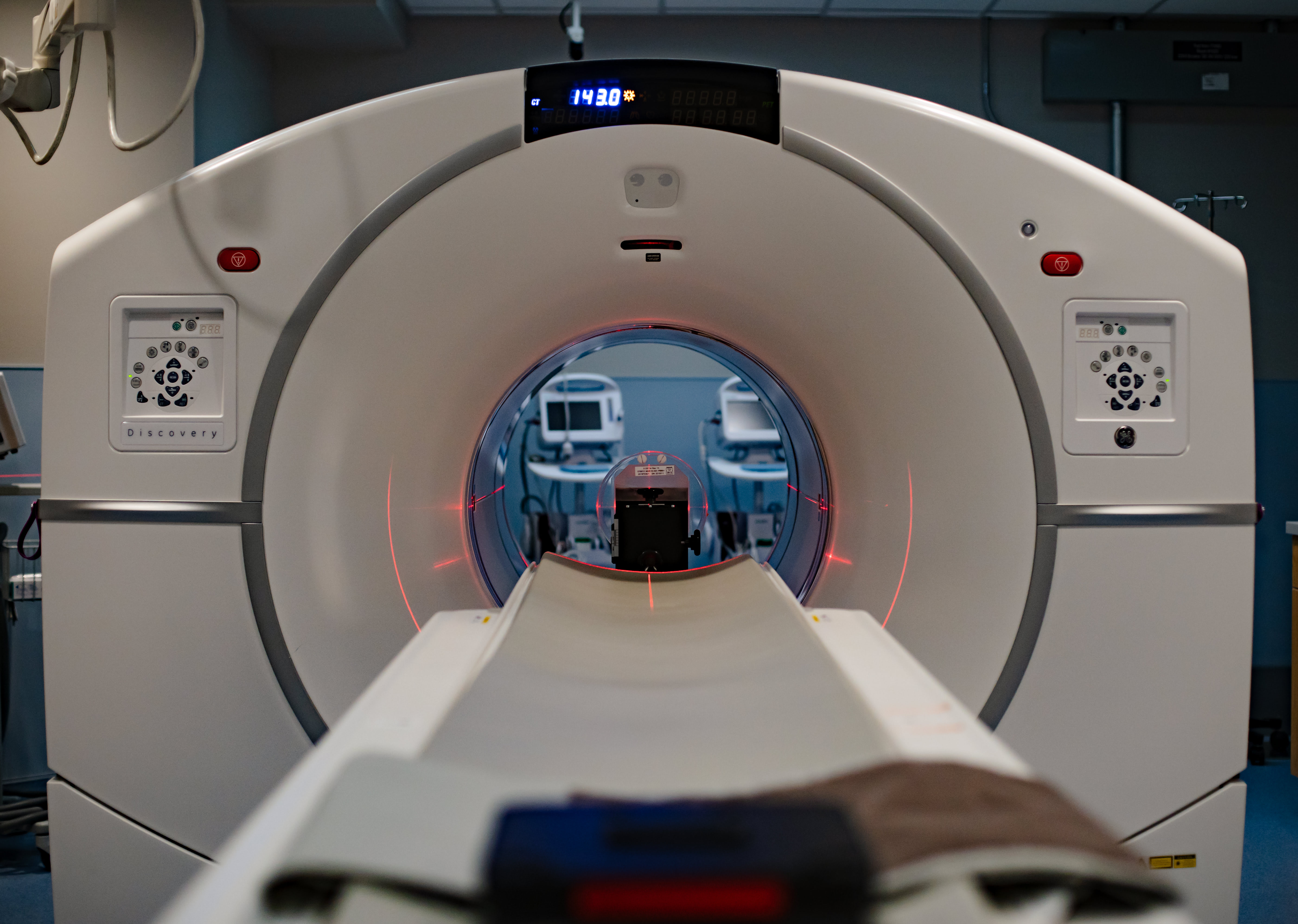Creating more room for care — including mental-health support — at BC Cancer
January 29, 2024
Found in Access, BC Cancer - Victoria, World Cancer Day

Article was originally published in Douglas Magazine in December 2023.
Joanne Falvai and her husband Mark ordered in a family-favourite, Thai food, one night in 2020 — after which they planned to gently break it to their three boys that their mom had brain cancer. As the news settled in, Joanne recalls the reaction of her then 9-year-old twins and 12-year-old.
“I don’t know who said it first, but they were like, ‘Oh, great. Now mom’s gonna add ‘cancer survivor’ to her resume of greatness.’ That was both a sweet and somewhat classic response in this family. We joke a lot about me playing the ‘cancer card’ when it suits me.”
The Falvai family’s unshakable sense of humour kept the Vancouver Island University criminology professor buoyed throughout her surgery, chemotherapy and radiation, much of which required her to travel from their home in Qualicum Beach to BC Cancer – Victoria.
But it was BC Cancer’s supportive care that got her through the serious mental health side effects of her treatment. To increase access to these essential services, the BC Cancer Foundation has launched a historic $15 million fundraising campaign to purchase a new building, the BC Cancer – Victoria Integrated Care and Research Pavilion and support cutting-edge research and clinical trials on the Island.
Depression and anxiety are common in cancer patients. And while lifesaving, chemotherapy, radiation and other therapies can initiate psychiatric side effects such as extreme anger, irritability, fatigue, loss of speech or cognitive function. For Joanne, a drug intended to shrink the swelling in her brain resulted in agitation and insomnia.
“I would go to bed at 10 p.m. and wake up at 1:30 a.m. I couldn’t sleep. It was very clear that I was not myself,” she says, and so she and Mark spoke with her oncologist who referred Joanne to a psychiatrist. “She was incredible and helped me get back on track.”
In addition to psychiatry, the new building will enable BC Cancer to enhance and expand on other supportive care services — such as patient and family counselling, hereditary counselling, medical genetics and nutrition — to improve quality of life and survivorship for patients.
As the first fully donor-funded BC Cancer building, the convenient location — just 250 metres from the existing cancer centre — will allow staff to work seamlessly between the two buildings. The proximity for patients is something Joanne appreciates as the cancer in her cerebellum resulted in movement and balance issues and she couldn’t tolerate being in the car for very long.
Despite Joanne’s intense treatment, which included six weeks of radiation, she says, “I have nothing but positive feelings about BC Cancer – Victoria. I would welcome a visit with my chemo and radiation teams. The people are just so wonderful. I don’t have any triggering feelings about being in that building at all.”
And yet, for the up to 20% of cancer patients who experience post-traumatic stress disorder (PTSD) she understands that accessing supportive care separate from where they received treatment is highly beneficial.
Now cancer free, Joanne admits, “I look back at the photos of my partially shaved head, matted hair and this giant scary scar on the back of my head and think, ‘How did we ever get through it?’”
It was thanks to support, she says. From her family, friends, neighbours, colleagues — even a few strangers — and her dedicated team at BC Cancer.
Learn more about how BC Cancer Foundation donors are closing the care gap for patients across the province.


